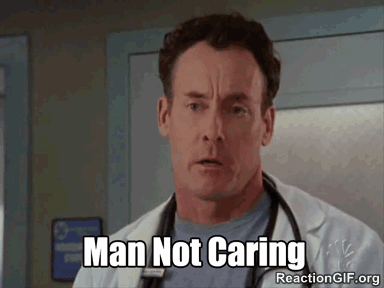In my friend group, I am known for saying, "sorry" so much that I say it when someone bumps into me, when someone interrupts me when I'm talking, and at multiple other times when I should not feel the need to say sorry. For a while, it has been a joke between me and my friends, but I have been noticing it more and more recently and I wanted to really understand why I feel the need to apologize for basically existing.
The 'Sorry Syndrome' I'm talking about stems from a sense of insecurity, experts say. It is also said that women, more than men, will often apologize for things they do not need to or start a question with 'sorry' so they do not seem too demanding.
Now, I didn't realize I was doing this to myself by saying 'sorry' so much, but I want to understand more about why I feel the need to create conversation when there is none or just apologize for being in someone's way.
Low self-esteem can also be a big reason that people say 'sorry' so much. This makes sense to me because when I say 'sorry' in unnecessary situations I am usually avoiding eye contact and just trying to get out of a situation where I have made it awkward or someone else has. When I am trying to open a door and walk through and someone else walks through, preventing me from doing so, I say 'sorry'. I do this because even though I was just trying to walk through the door, I feel like I am in someone's way and feel the need to apologize for it.
Saying 'sorry' a lot can also be a tool to get people to like you, like how Dr.Samantha Boardman explains in her article, "Sorry Syndrome": Do You Apologize for the Rain?": "Superfluous apologies represent a powerful and easy-to-use tool for social influence. Even in the absence of culpability, individuals can increase trust and liking by saying ‘I’m sorry.’" Dr.Boardman also goes on to talk about ways that you could possibly change the bad habit of apologizing so much. She says, "instead of saying, “Sorry for rambling” you can say, “Thank you for listening.” Instead of saying “Sorry” when you move past someone on a train, you can say “Thank you for making room.”" This sounds like something I should try.
My roommate and I have taken to trying to replace 'sorry' with other words to get the submissive, powerless behavior out of our systems. We say 'Sookie' (Gilmore Girls character) or we simply just say 'I'm not sorry' in a way that doesn't seem mean.
This idea that saying sorry can make someone see you as submissive and powerless is really interesting and it has made me question every time I say the word now. I have to double check before I say it to make sure it is validated. When someone talks about not being able to talk to their parents about something important, not knowing what to write about for an essay for class, or not understanding something, I can apologize because I feel bad and I want to comfort them. But, when someone bumps into me, interrupts me while I'm talking, or does something that merits no sympathy from me, I will not say 'sorry'.
Anyone who does this all the time would agree that I may be hard but, like it is said in the article, Why do I say 'Sorry' all the time? Experts call it the 'Sorry Syndrome', by Monica Drake, "learn to accept yourself and the decisions you make without apologizing for it. And learn to accept the fact that it is impossible to make others happy all the time."
I really hope that all of this information can help people who are in a similar situation because I think we all could use a bit more self esteem, confidence, and assurance that we matter and we don't need to apologize for it. And if that didn't help, hopefully this gif of Joey from Friends will:

























